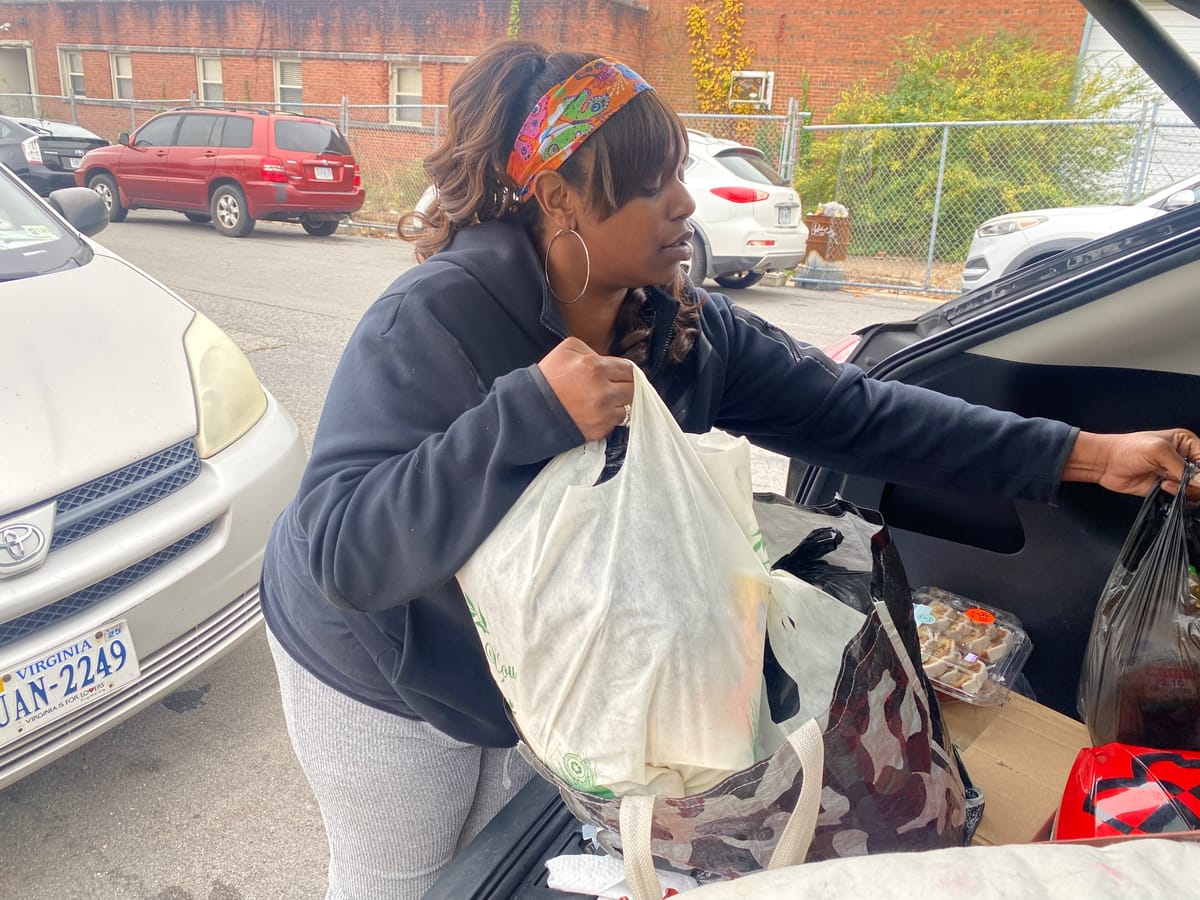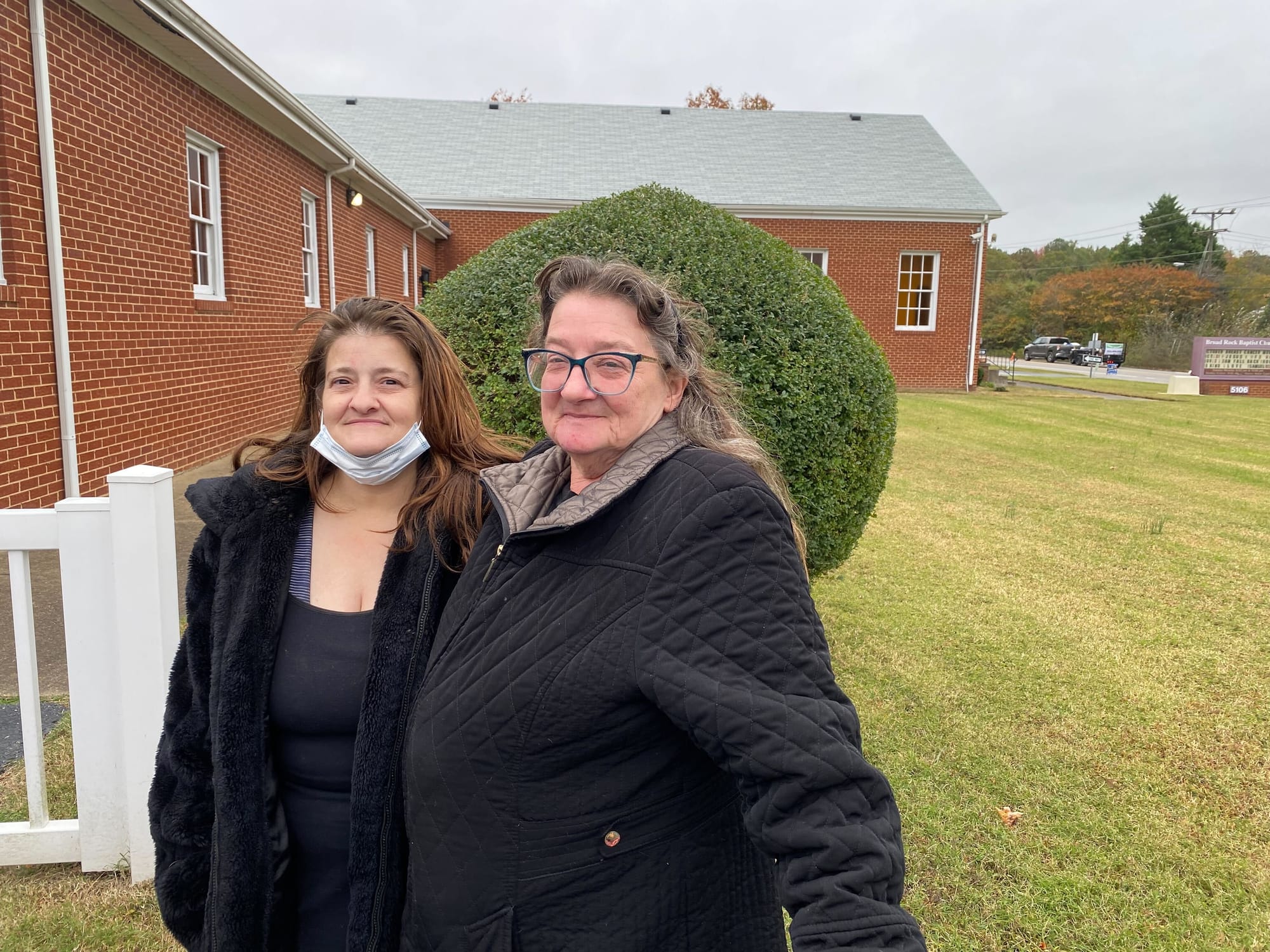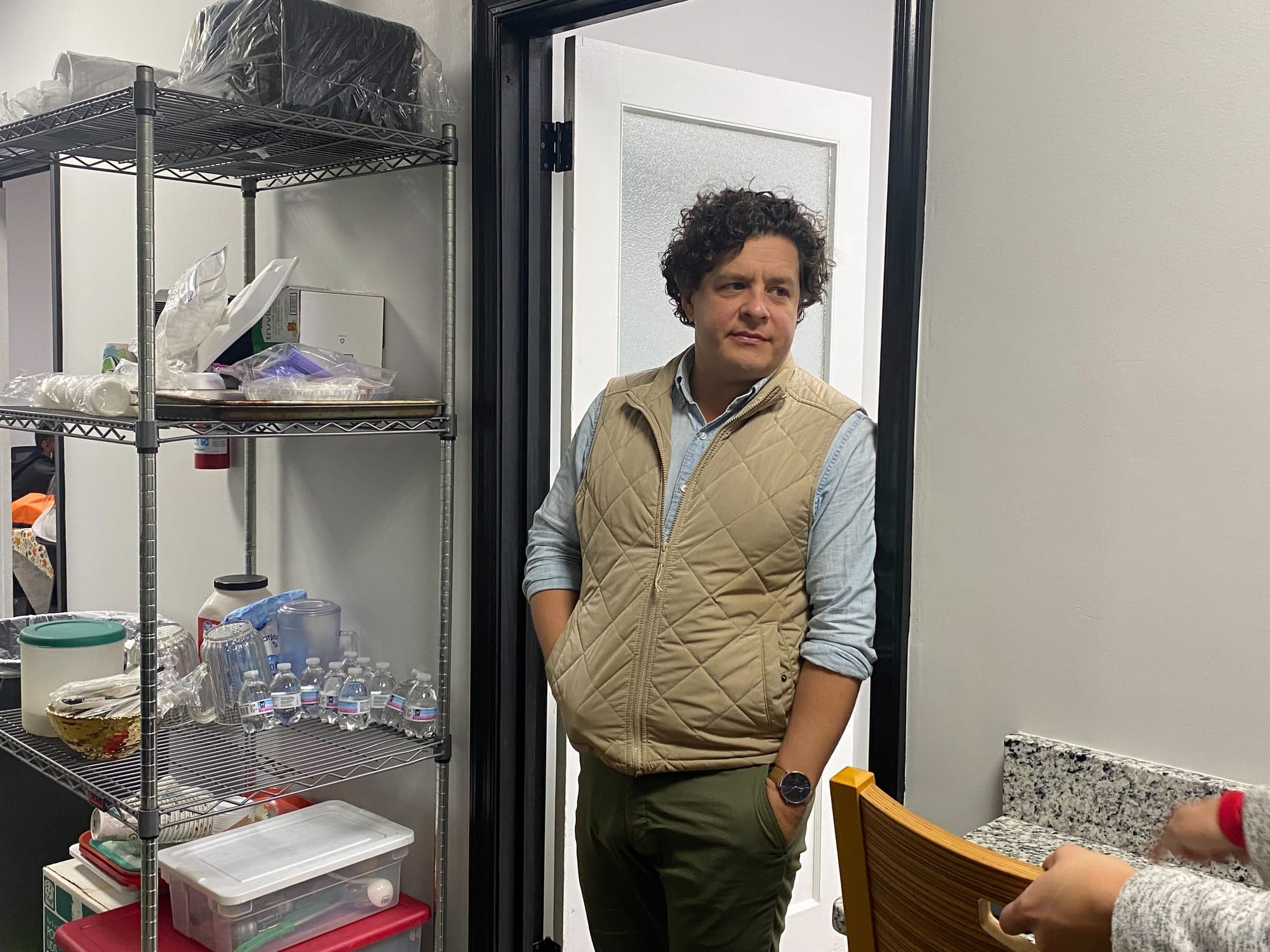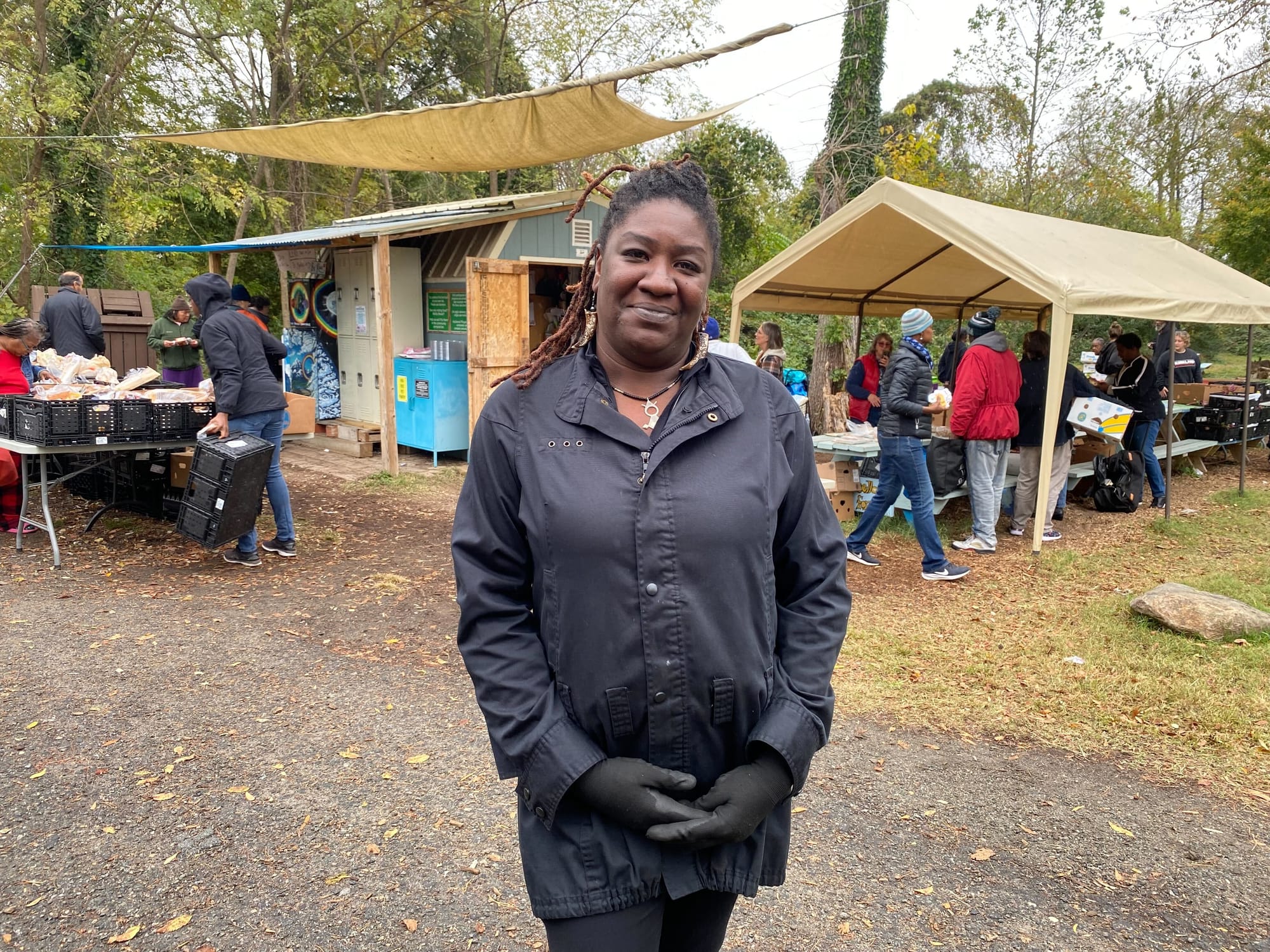Richmond food pantries strain to meet demand as SNAP funding halts

Every two or three days of the week, 50-year old Alana Boggs visits the pantry at Broad Rock Baptist Church to stock up on groceries.
The Southside resident is a primary caretaker of her husband, who suffered from a stroke, as well as her daughter and two grandbabies. She receives benefits through the Supplemental Nutrition Assistance Program, or SNAP, a federal program that provides funding to low-income individuals to purchase food from grocery stores.
But even with the assistance, she said it’s not enough to adequately provide for her family, causing her to frequently visit the pantry. So when the Trump Administration informed states that it will not fund the program in November due to the ongoing federal government shutdown, she said she was really worried.
“I don’t know what we would do without the food stamps,” she said Tuesday morning. “That’s literally how we eat every month.”
Linda Brookings, who was standing in line with Boggs, echoed Boggs’ concerns.
“Back in the 70s they used to take dandelions and make dandelion stew,” she said. “That’s what you feel like you’re going to be down to – going outside and eating the grass.”
It does not help that local pantries like the one at the church are also seeing a greater demand in visitors, while receiving a limited supply of food.
“It’s light!” said one volunteer at the church Tuesday morning, pointing to the normally full table that was now holding sparsely laid out produce like eggs, juice and vegetables. “This week we didn’t get a lot. And it may be the beginning.”

Over 38,000 individuals and 22,000 households in Richmond receive federal funding to purchase food, according to a September report from the Virginia Department of Social Services. They are now at risk of losing over $7 million in benefits in just a few days.
Both the state and city are now rushing to fill the federal government’s gap. Gov. Glenn Youngkin announced earlier this week that the state will step in through the Virginia Emergency Nutrition Assistance program. Individuals who received SNAP in October will receive VENA payments on a weekly basis throughout November.
“This process has never been done before at the state level, so we're doing everything we can to get folks the benefits as fast as we can,” he said this week.
The state will also provide an additional $1 million to seven major food bank partners like Feed More, a nonprofit organization that serves 29 counties and five cities, including Richmond, by distributing food to local pantries.

Mayor Danny Avula said that the city is monitoring local impacts and coordinating with regional partners to assess the need. But he also said that the state’s initiative falls short for local families because it distributes payments in weekly increments, rather than SNAP’s usual monthly disbursement.
“Administering the program will pose challenges because most families don’t shop in such small increments, and it’s not hard to imagine how that could be difficult for a household with teenagers, for example,” he said. “While we are grateful for the state’s efforts, we anticipate food insecurity will remain a challenge that requires our continued vigilance.”
City officials also announced that Richmond will join Henrico and Chesterfield in providing a regional contribution of $200,000 to Feed More, while still asking that community members donate to the organization.
Richmond Ed Fund, the organization that helps fundraise for Richmond Public Schools, is also accepting donations to launch The Love Project, which will host pop-up markets that RPS families can grab food from.
The looming federal cuts to SNAP have put immense pressure on Feed More. Aaron McClung, the organization’s chief development officer, said that from January to September, the nonprofit has witnessed a nearly 14% increase in demand for the entire area they serve, including Richmond, which he said has a significant amount of need. In Richmond specifically, the amount of meals provided also went up – from 6.9 million meals last fiscal year to 7.2 million meals this fiscal year.
At the same time, the organization has experienced a decrease in donated supply, exacerbating the challenge.
While McClung believes the state’s assistance is helpful, it’s only providing a fraction of what families get through SNAP. He believes, adding that the true viable solution is the reopening of the federal government.
“For every nine or 10 meals that SNAP provides, food banks in general, nationally, only provide one. So any significant cut in SNAP which we’re seeing now, food banks, even if we doubled or tripled, would not be able to meet the overwhelming need of just those folks who need assistance,” he said.

The lack of supply in turn affects the about 100 food pantries Feed More distributes to, including Broad Rock Baptist Church.
“FeedMore is being impacted as well, because the amount of food they have has dropped,” said Pastor Kevin Cook. “So, that’s impacting us. We always knew we could scramble to get three or four extra bags, and now, it’s a scramble to create one extra bag. And it’s not Feed More’s fault.”
“Even Feed More has less,” said one volunteer at the church.

Increased demand, limited supply
Similar to Feed More, local pantries are seeing an increased presence of visitors to sites while having limited produce and tight budgets.
Capital Area Partnership Uplifting People, an organization providing food and housing needs on Northside, normally sees an average of 40 individuals each day from Monday through Thursday, from 10 a.m. to 12 p.m. In the last few days, the organization has seen an influx of 20-30 new people.
Michael Rogers, executive director for CAPUP, said that the organization would have to expand its hours and resources – which are already tight – if more people were to visit.
“Short-term we’re designed to be nimble and responsive, but if it persists for weeks and months at a time, which I think we all anticipate that it will, that becomes a question of resources,” he said.
One of the new faces Rogers and volunteers saw Tuesday morning was Taylor Darden, a mother of three children residing in Mosby Court. She reapplied for SNAP benefits in July after she stopped receiving them in September last year. Darden said she heard back from officials for an interview to receive the benefits last week, but it is unclear whether that interview will happen, or if she will even get the benefits at all because of the shutdown.
“It’s frustrating, but as long as they have free resources … it [has] helped out when I didn’t have anything,” she said.

Other clients are also expressing that frustration and anxiety because the outcome is still unclear, Rogers said.
Saundra Laws, the organization’s Basic Needs Manager, said that because CAPUP has been getting less from Feed More, the organization has had to outsource and buy from local farmers to fill the need while on a tight budget.
“I guess everybody is in panic mode,” she said.
The same applies to Fonticello Food Forest, a grassroots food bank and community garden located on Southside. Kiadda Edwards, a volunteer for the group and former recipient of SNAP, said that the individuals who seek food from the site that are also receiving federal food assistance are only getting $20-$30, not enough to cover a month's worth of food.
“It is helping them to survive right now,” she said, predicting an even greater need in the coming weeks and months if programs remain shuttered.
Co-founder Jameson Price said typically 125 individuals were visiting the site near Jones Carter Park, where they first began serving residents during the COVID-19 pandemic. That number has risen over the last few months to 200. The organization also receives food from Feed More, but like CAPUP and Broad Rock Church, the supply is getting scarce.

Price called on local restaurants, cafes and businesses to help by stepping in to donate food during a time where local pantries all over are squeezed of their resources.
Despite the anxiety about what’s to come, McClung – Feed More’s chief development officer – said history has shown that the Richmond community does show up in times of need, keeping him hopeful about what’s to come.
Even at Broad Rock Baptist Church, members have seen donations from local residents, and the church has made plans to fill the need themselves.
“We know it’s going to cost more for the church to have the items we need to give out,” said Rose Booth, a deacon at the church and overseer of the pantry. “But we’re going to pitch in as much as we can to take care of that slack.”
Contact Reporter Victoria A. Ifatusin at vifatusin@richmonder.org
The Richmonder is powered by your donations. For just $9.99 a month, you can join the 1,200+ donors who are keeping quality local news alive in Richmond.






